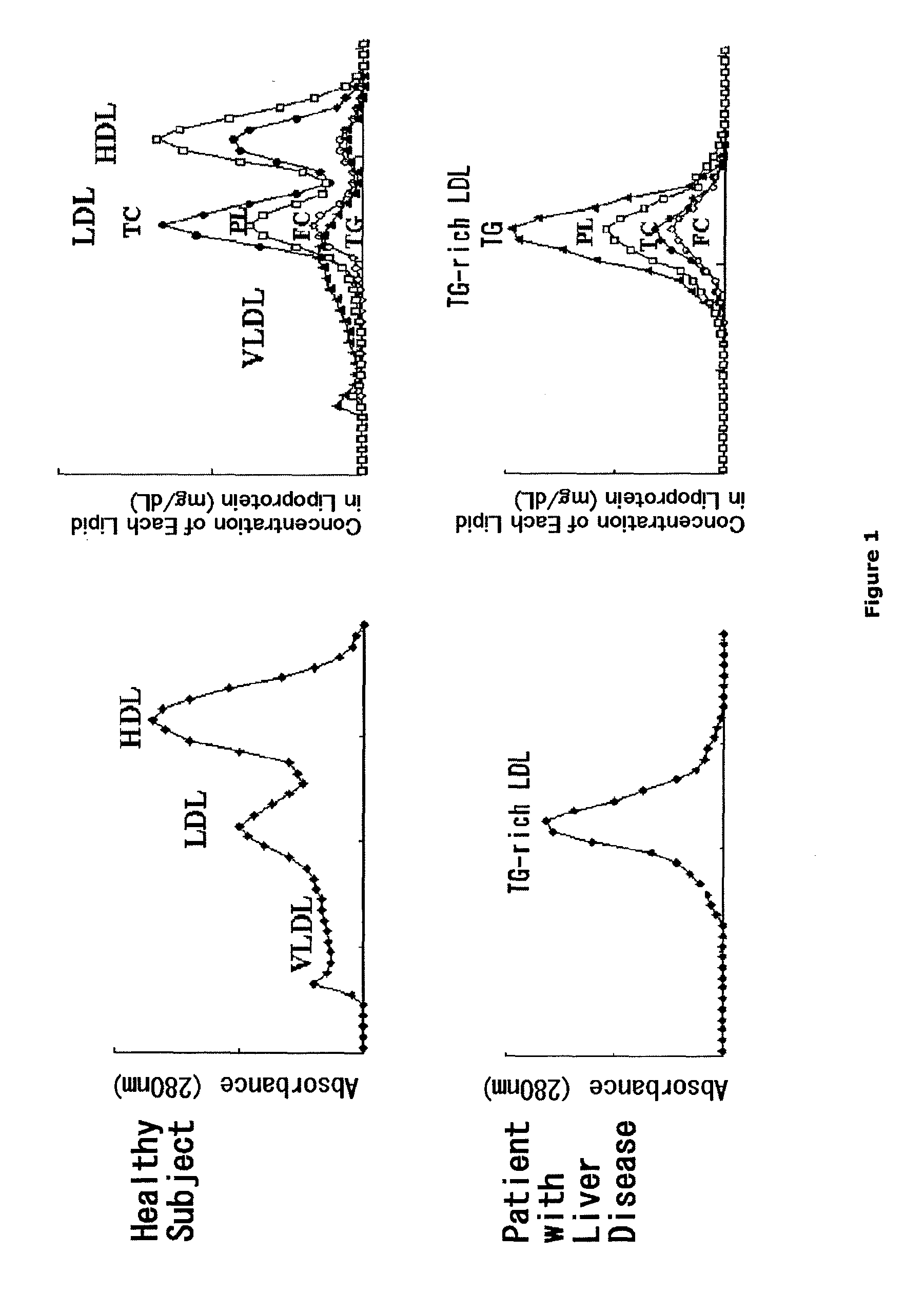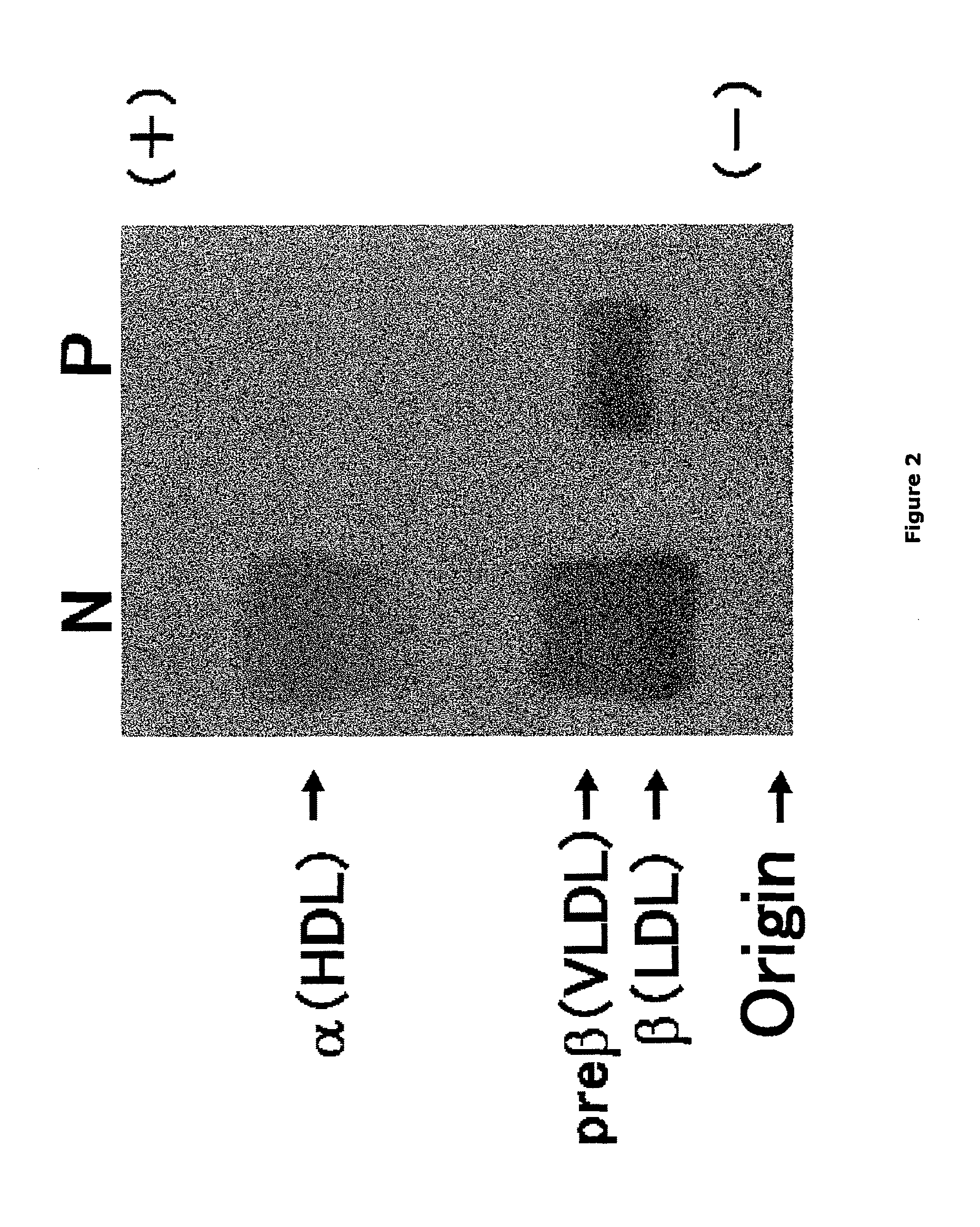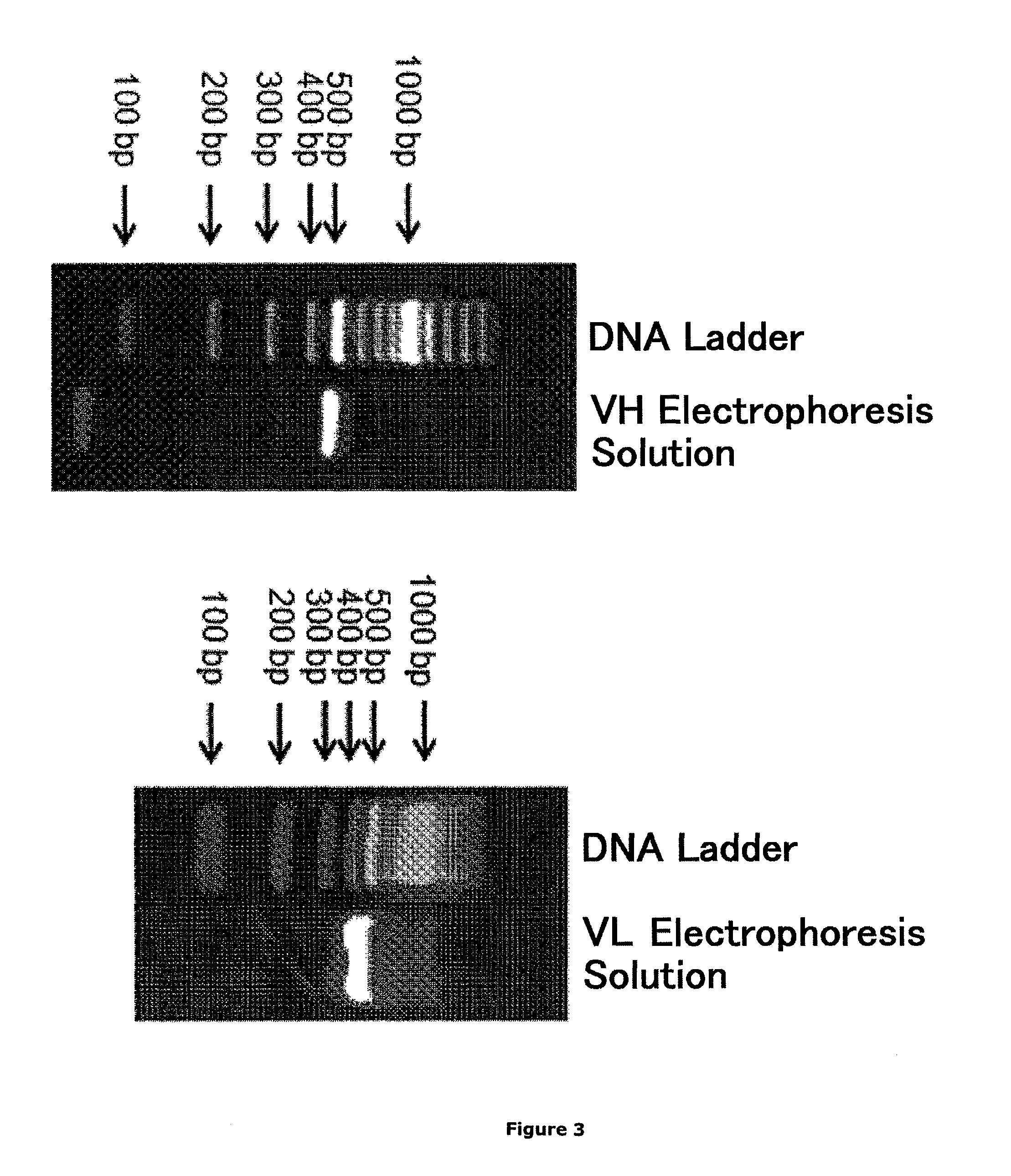Monoclonal antibody against slightly oxidized low-density lipoprotein and hybridoma for producing the same
- Summary
- Abstract
- Description
- Claims
- Application Information
AI Technical Summary
Benefits of technology
Problems solved by technology
Method used
Image
Examples
example 1
Production of Monoclonal Antibody by Using TG-rich LDL as Immunogen
(1) Examination of TG-rich LDL by Agarose Gel Electrophoresis
[0111]Blood collected from a patient with terminal liver disease and a healthy subject was placed at room temperature for 1 hour, and then was subjected to centrifugation under conditions at 3500 rpm and 4° C. for 10 minutes to prepare sera from a patient with terminal liver diseases and a healthy subject. Next, 1.5 μL each of the resulting sera was applied to an agarose gel (Universal gel / 8; HELENA, Inc.). The gel was placed in a barbital buffer solution at pH 8.6 with an ionic strength of 0.06, and was subjected to electrophoresis at 100 V and 150 W for 45 minutes. Then, the gel was dried with a dryer. Subsequently, two drops of Triton X-100 were added to 20 mL of methanol containing 0.03% (w / v) of Fat Red 7B (HELENA, Inc.). Additional 4 mL of 0.1 mol / L aqueous sodium hydroxide was added thereto to prepare a staining solution. The dried gel was impregnate...
example 2
Class Determination of G11-6 Antibody
[0142]The class of G11-6 antibody of Example 1 (5) was determined by immunochromatography using an IsoStrip mouse monoclonal antibody isotyping kit (Roche, Inc.) according to the attached protocol. The result revealed that the class of G11-6 antibody was IgM.
Example 3
Identifying Sequence of Variable Region of G11-6 Antibody
(1) RNA Extraction
[0143]Hybridoma G11-6 of Example 1 (4) was inoculated in a 25-cm3 flask containing 10 mL of 10% FCS-containing RPMI1640 medium, and was cultured under 5% CO2 atmosphere at 37° C. for 72 hours. Next, a supernatant was removed by centrifugation under conditions at ordinary temperature and 8500 rpm for 5 minutes to recover a cell pellet. Then, RNA was extracted from the recovered cell pellet by using an Absolutely RNA Miniprep kit (Stratagene, Inc.) according to the attached protocol.
[0144]Specifically, first, 4.2 μL of β-mercaptoethanol was added to 600 μL of a lysis buffer, and the mixture was applied to a cell...
example 3
Reactivity Toward Serum of Patient with Liver Disease in ELISA with Immobilized G11-6 Antibody
(1) Preparation of Serum Sample
[0173]Serum was collected as a sample from a patient with liver disease and a healthy subject.
(2) ELISA with Immobilized G11-6 Antibody
[2-1] Preparation of Biotin-labeled Anti-apolipoprotein B Antibody (Detection Antibody)
Purification of Anti-apolipoprotein B Antibody
[0174]Goat antiserum containing an anti-apolipoprotein B polyclonal antibody (WatPa; Enterprises, Inc.) was precipitated with saturated ammonium sulfate according to a common procedure and a procedure as described in Example 1(5) to yield a crude anti-apolipoprotein B antibody solution. Subsequently, the crude anti-apolipoprotein B antibody solution was subjected to affinity column chromatography according to a common procedure to yield a purified anti-apolipoprotein B antibody. Specifically, first, the crude anti-apolipoprotein B antibody solution was diluted 10 times with PBS, and was then made...
PUM
| Property | Measurement | Unit |
|---|---|---|
| Temperature | aaaaa | aaaaa |
| Time | aaaaa | aaaaa |
| Time | aaaaa | aaaaa |
Abstract
Description
Claims
Application Information
 Login to View More
Login to View More - R&D
- Intellectual Property
- Life Sciences
- Materials
- Tech Scout
- Unparalleled Data Quality
- Higher Quality Content
- 60% Fewer Hallucinations
Browse by: Latest US Patents, China's latest patents, Technical Efficacy Thesaurus, Application Domain, Technology Topic, Popular Technical Reports.
© 2025 PatSnap. All rights reserved.Legal|Privacy policy|Modern Slavery Act Transparency Statement|Sitemap|About US| Contact US: help@patsnap.com



